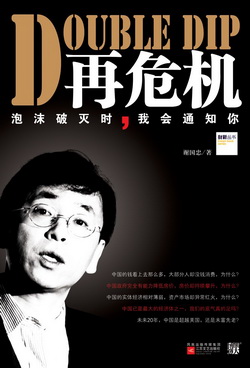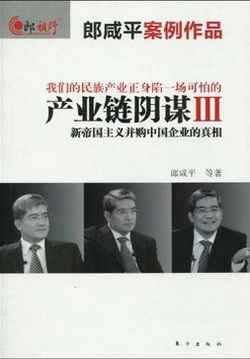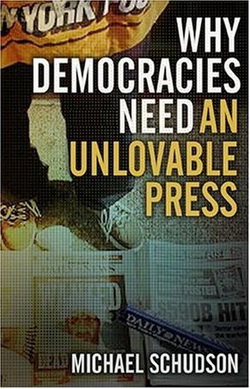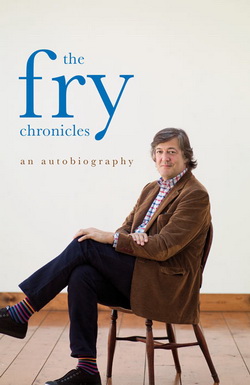

September Issue of EO's Book Review

EO Exclusive with Andy Xie: I'll let you know when it bursts
Double Dip by Andy Xie
Interview by Cheng Mingxia
[Dialogue] p. 14
Original Article [Chinese]
~ Early in his career, Andy Xie (谢国忠) made a name for himself, having predicted the Asian financial crisis, the burst of the post-HK handover real estate bubble and the deflationary episode in the lead up to 2000. Xie was one of the few who saw that hedge fund bankruptcies in August 2007 signaled a crisis on Wall Street and the collapse of Lehman Brothers.
~ Known as Mr. Bubble, he has been the authoritative voice in predicting the Chinese real estate bubble busts. Xie tells us, "I'll let you know when it bursts."
~ Having studied economics at MIT, Xie also has an interest in history and fiction.
~ His new book Double Dip is written in English.
~ Xie says that unlike the situation in Hong Kong, governments, not businesses, have pocketed the money from the mainland real estate bubble. Developers actually earn very little; over 60% of the money that developers make is collected in land taxes.
~ According to Xie, "vacancy rates" and "high prices" are indicators of the condition of the real estate bubble. The vacancy rate is about 25-30% in commercial housing. Because of high prices, the return rate on rent is at 3%, significantly lower than 7% in Japan, and 10% in Germany.
~ Xie goes on to say that the housing boom does not correspond to the real needs of urbanization in China; "people who need a house can't afford it, others who have a house buy more property to turn a profit." Also, the property market has become a hiding place for the country's "gray income."
~ Xie points out that the Chinese middle class does not appear to be middle class because they cannot afford housing. He says that the real estate bubble concentrates the nation's wealth in the hands of the government and warns that China's economic development has come to depend on gray income.
~ Xie says that after years of toil, people in China are finally wealthier. He hopes they can hold on to their prosperity.

Lang Xianping is Making a Lot of Noise, but is Any of it Relevant?
The New Imperialism in China I and II 《新帝国主义在中国》 and Corporate Conspiracies III 《产业链阴谋》 by Lang Xianping (郎咸平) - also known as Larry Lang
Reviewed by Zhang Hong
[Discussion] p. 23
Original Article [Chinese]
~ Armed with Lenin as a theoretical tool, Lang Xianping takes on imperialism's past and present in China.
~ Lang writes that "Imperialism never left China; it's simply taken on a new form that we don't yet recognize."
~ Foreign capital and investment lies behind China's industrial and infrastructural development. Drawing from Lenin, Lang still identifies the ideological influence of the US on China as imperialist, and aimed at securing its own hegemony.
~ But Lang seems to unfairly demonize the US, offering a perspective reminiscent of China's Cold War isolationism and inappropriate for today's complex economic climate. He sounds the trumpet and makes a lot noise, but there's not much in the way of real substance.
~ Lang writes that China's economic development with the west began as a fair exchange but has turned into foreign exploitation. But he ignores 30 years of real domestic development not buoyed by foreign interests. Development has been for the benefit of the Chinese, not the west.
~ Lang sees China as the perpetual victim, but this prejudice clouds his interpretation of China's economic growth. He harps on the amount of foreign influence, but offers no solutions.
~Lang is clearly knowledgeable and thoughtful, and is genuinely concerned about China's future development, but his use of theory produces problematic interpretations of economic and political phenomena. Lang is genuinely trying to assess the historical picture, but his rhetoric seems to provoke more than analyze.
~We should try and understand the problems Lang raises but not be misled by the sound and the fury.

Why Journalists are Unlovable
Why Democracies Need an Unlovable Press by Michael Schudson
Reviewed by Liu Yuhai
[Academic] p. 29
~ Journalists are not loved. They're capable of being intrusive, manipulate and of sensationalizing.
~ In a free democratic country, the public decides. The public therefore needs to know the government's actions, their goals, and their motives. Ideally, the press is the "watchdog" of a democratic society. Consequently, journalism can be a noble and dangerous profession.
~ But Schudson also addresses the conflicting aspects of the journalistic business. A free press means the press is not always interested in informing the public, it is also interested in the selling papers. It is democratic in its distribution and content, but it is consequently also sensational.
~ Schudson's book is relevant to the development of the press in China. The Chinese press has helped to better inform the public by reporting on corruption and risks to consumers posed by unsafe products such as milk powder.
~ But the work climate for journalists in this country is still relatively unstable, even dangerous. The press cannot be the watchdog of the democracy if journalists can be fired at the drop of a hat, because of a phone call from the government.
~ In other countries, notably in America and Europe a free press has actually led to a more stable political climate and a safer public. Hopefully the same can happen in China.
Also reviewed in the academic section:
The Works of Isaiah Berlin reviewed by Zhang Xiaobo
《政道与治道》(Zhengdao yu Zhedao) by Mou Zongsan, reviewed by Wang Dongdong

The Accidental Actor Author
Various works of Stephen Fry
Reviewed by Lu Pin
[Literature] p. 11
Original Article [Chinese]
~ The EO examines the literary oeuvre of Britain's Renaissance man Stephen Fry. Fry is a journalist, television presenter, actor, director, and writer.
~ After graduating from Cambridge University, Fry went on to act in English films like Wilde and Gosford Park and host his own talk show and BBC's University challenge.
~ Stephen Fry's Incomplete and Utter History of Classical Music delivers exactly what the title promises. It is a cursory and often shallow but fun examination of the history of classical music that is conversational in style. The book exemplifies Fry's humor, sometimes veers into imitating the journalistic style of the historical period for a laugh.
~ In The Ode Less Traveled, Fry tackles poetic composition with an "you too can write poetry" approach. The book won't make you a great poet, but it will bring to you the joy of rhymes in English, and possibly, even a greater appreciation of poetry.
~ Stephen Fry's English Delight – is an adaptation of his BBC TV series of the same name featuring questions about metaphor, cliché, and quotations as well as English grammar and usage.
~ Making History, Fry's third novel, is the story of a young history student at Cambridge who works with a physicist to build a time machine. Both men have a fascination with Nazi Germany and together return to turn of the century Austria to prevent the birth of Hitler, a plan which though successful, results in the Nazis winning the war and other catastrophic consequences. A novel that moves fast, and displays in its style Fry's experience in film.
~ Fry's other novels include The Stars' Tennis Balls, A Revenge, The Red Shoes and The Liar.
Links and Sources
EO's Book Review: Official Site
Douban: EO\'s Book Review

